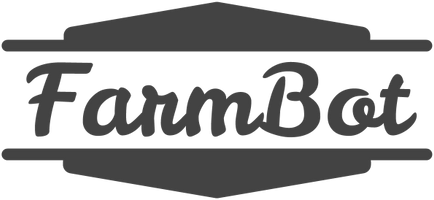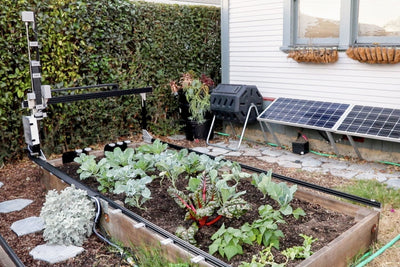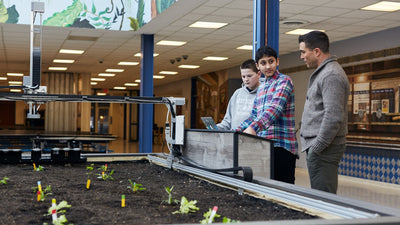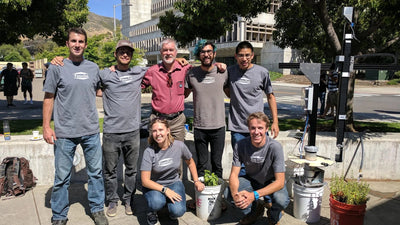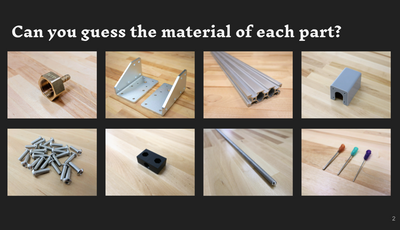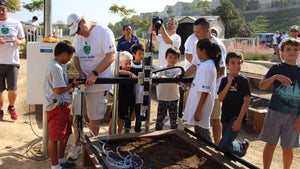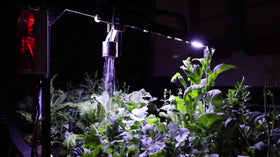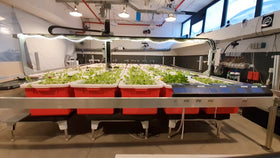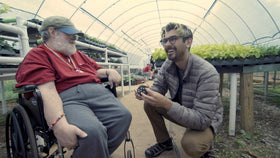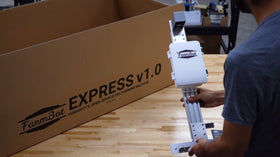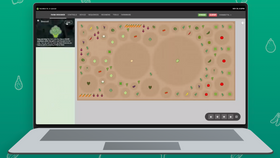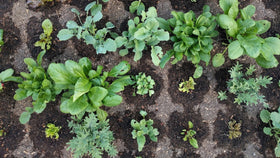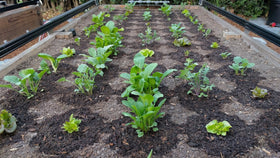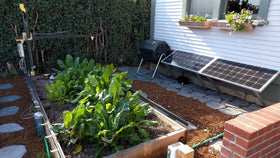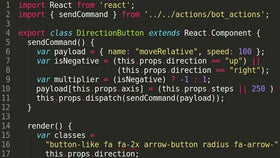Not applicable to Net 30 POs
FarmBot Q&A with AgFunder
Editor’s Note: Suzanne Zuppello is a journalist with food magazine Edible Manhattan, and has been writing about food tech in advance of the Food Loves Tech conference next month. Rory Aronson wants you to steal his idea. Seriously. In founding FarmBot, he decided none of his ideas would be proprietary. Everything he and his team design and all of the information they gather is yours for the taking. It’s that strategy that keeps the FarmBot team constantly innovating and reacting to new ideas and feedback to make the best, automated farmer for your backyard. Want to learn more about FarmBot? They’ll be in New York City June 10-12 for Food Loves Tech. Suzanne Zuppello: FarmBot sounds like the title of a George Lucas film. Is it as sci-fi as it sounds? Rory Aronson: Sort of. After graduating with a degree in mechanical engineering, I decided I wanted to reinvent the way food is grown in order to adapt to the growing use of technology in people’s lives. When I thought about rebuilding the agricultural process, a robot is what I pictured. It is quite literally a robotic device that someone can control through their smartphone or laptop. It’s simple enough to use in your home but sophisticated enough to adapt to a larger scale. SZ: You say anyone can use FarmBot—but I imagine some knowledge or skill is requiring before diving into building a backyard farm. RA: Not necessarily. A person decides what they want to grow, and FarmBot will do the rest. It can plant seeds and systematically water them based on how old the plant is, how it’s growing and what the local weather is. Much like having a 3D printer in your home and deciding what you want to make, you can decide what you want to grow to your own specs and FarmBot will do it. It transitions the control of the system one may have to the consumer. For instance, if you want to grow spinach in Manhattan or kale in the tropics, FarmBot can gather this data in order to grow the plant. SZ: But where is FarmBot gathering it’s information from? RA: We’ve created a non-profit database called OpenFarm that’s linked to FarmBot. Through this, people can upload growing guides for trees, herbs, flowers, mushrooms — any agricultural product. It’s like a recipe book for farmers. Anyone with or without a FarmBot can use this data and learn how to garden. This data is also available to any agricultural technology through an open API. SZ: It’s an interesting business model to give information like that away for free. RA: My drive in establishing this company is not profit. Everyone eats, so everyone should have the ability to grow their own food, with a little help. By making our growing guides as well as the specs to build a FarmBot totally open sourced, we’re acknowledging that we think we’re doing it the best while still being open to improvements entirely. If someone can do it better than me, I welcome that because that will push our mission and technology forward. SZ: So I take it there’s no patent pending on FarmBot? RA: Not at all. I’m not worried about the lack of a patent. Proprietary products can allow for competitive advantage, but it’s my belief that it’s a cheater’s way out. My competitive advantage is that I’m the first to market and building a brand of trust that puts consumers first. I believe open sourced information is the way of the future. More companies are opening up about their practices and technology, in order to put the consumer first. I think people are going to respect the way we’re doing this rather than a competitor who takes everything from FarmBot and then makes it proprietary and doesn’t make it open. SZ: That’s an incredibly honest and valuable approach. Is the machine ready to ship? RA: Not yet. We’re still in R&D mode. There’s actually a prototype moving through my yard right now. I have cameras pointed on it and the plants to see where we can improve. Ultimately, we’ll create a timelapse of a three month period showing everything from planting to harvest with a FarmBot. Once this video is ready, we’ll prepare a crowdfunding campaign to invite people to join the team as early adopters and implore them to hack our system in order to improve it. When it does ship, the user will need to assemble it. SZ: Well, I hope it’s easier to put together than my Ikea bookshelf! RA: We think it is. Every piece is cut to size, and every wire is there with clear direction. We want to empower people to grow their own food, so confusing them with advanced mechanics is not the way to get there. With that said, we also see FarmBot being used to grow plants beyond consumption. Because the process is so controlled, you can use it to grow plants for lab testing and remove the element of human error. SZ: Do you see FarmBot as a means to end food scarcity? RA: While that would be fantastic, it’s not our aim. We are focused on anyone who wants to grow food in a way that requires less energy, less transportation, and hopefully less water and time. Having FarmBot is essentially giving everyone an extra set of hands — and if you have hands, you can do anything. What do you think? Would you use Farmbot to grow your own produce? Get in touch: Louisa@AgFunder.com
